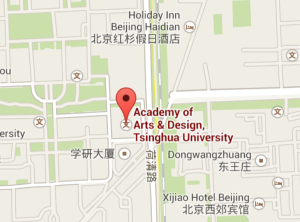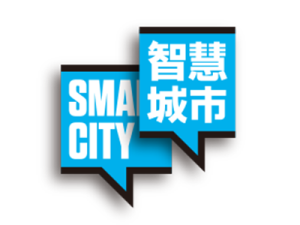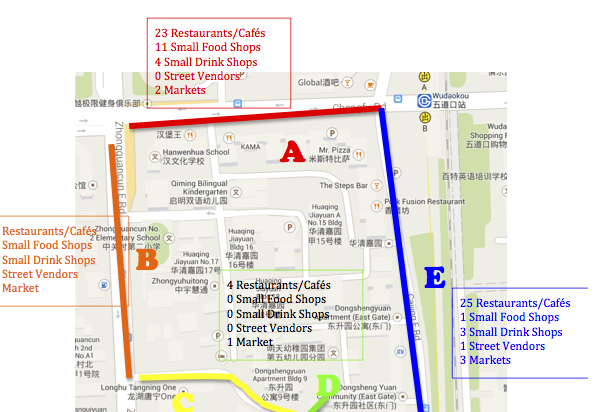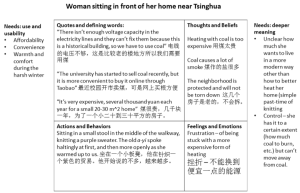This post is by Adriana Baird, Moon, Han Lin (Nancy), Alec Hogan, Zoey Zhou Yang
We are the food systems group, investigating the changing nature of food systems and preferences in modern Beijing during this period of rapid urbanization. We are excited to engage in this project through observing people in their environments, interviewing individuals in different places and spaces in Beijing, using other various fieldwork techniques like counting and tracking, and of course, eating the food of Beijing.
What did you do?
We began this workshop as strangers to one another, but have since pushed past the language barrier and are both friends and collaborators. After breaking the initial awkwardness through icebreakers, we got to know each other by sharing experiences. We have shared everything from meals to intimate bike trips and trips to cafes. The two Americans sat on the back of our Chinese collaborators bikes, which drew quite a few looks and laughs across the Tsinghua campus. In sharing these experiences as a group, we are definitely forming a more cohesive unit that will be beneficial in adding enjoyment and productivity to the experience moving forward. We are leaning the idiosyncrasies of our very different cultures, and are going to try and learn a new phrase from each other every day. Hopefully by the end of the seminar Adriana and Alec will be able to say more than “hello,” “goodbye,” and “thank you” in Chinese, and Nancy, Zoe, and Moon will pick up some American slang.
In terms of formal activities, we have done some preliminary fieldwork and practiced a few fieldwork and observing techniques from the Bridge Café in Wudaokou, presented our observations to the rest of the students in the seminar, and have since begun to delve deeper into forming the foundation for our project. Today we explored the topic of food systems in general through a “mind map” in order to come to a more narrow research question that we can use to address the four pillars of sustainability. It took us a while to come to a research question that we all though was relevant and interesting because of the broad spectrum of the topic and an inability to understand one another perfectly. We spent a lot of time discussing and sharing our views over lunch at the canteen and the Paradiso Café during out break. After a few hours of discussion, we ultimately decided on a research question and proceeded to create our action plan for next week–where we are going to go, who we are going to talk to, and when we are going to do it. We all seem to be on the same page and are excited to go into the field and start researching!
Continue reading Food Systems Team Update #1 →




